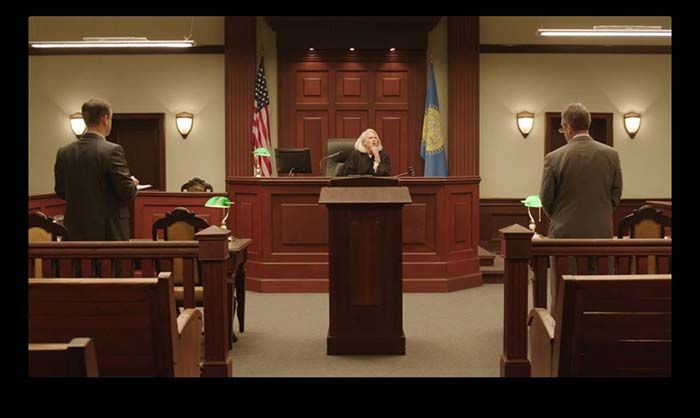Here are the basic steps in defending against foreclosure in court if you don’t have a lawyer.
If you want to successfully defend against a foreclosure, it is best to hire a lawyer. However, if this is not possible and you want to fight the foreclosure on your own (called representing yourself “pro se”), the way you go about it depends on whether the process is judicial or nonjudicial.
Below we provide a general guide on the steps you’ll need to take if you want to defend against foreclosure on your own.

Should You Represent Yourself in Foreclosure Defense?
If you are struggling to pay your mortgage, there are some things you can do on your own to avoid foreclosure or pursue another option. For example, you may be able to apply for a loan modification to make your payment more manageable or sell your home through a short sale with the help of a real estate agent. But fighting a foreclosure in court is not one of the procedures that lend itself to self-representation.
Good foreclosure attorneys have special skills developed over years of law school and many years of practical experience, as well as extensive knowledge about the complicated area of foreclosure law. Only an experienced foreclosure attorney will be aware of all the possible defenses in your situation and know the proper way to use them to fight a foreclosure in court.
However, if you’re going to challenge the foreclosure without an attorney here are the basics that you’ll need to know.
Understanding Foreclosure
Foreclosure is the legal process that the lender (or a subsequent owner of the loan) uses to sell a home and pay off the debt if the homeowner doesn’t make the mortgage payments.
Defending Against Judicial Foreclosure
In a judicial foreclosure, the lender files a lawsuit in state court. You will receive a foreclosure complaint, petition, or similar document, along with a summons. The summons will notify you about your rights and state how many days you have to formally respond in writing (called the answer) to the complaint, usually 20 or 30 days.
What goes in the answer. An answer, which you must file with the court and serve to the foreclosing party, should include:
- a response to each numbered paragraph in the complaint stating whether you admit, deny, or don’t have sufficient information to respond (and therefore deny) the allegations in the paragraph (if you admit an allegation, the lender does not have to provide proof of that allegation)
- your defenses (for example, you’re not actually behind in payments) or affirmative defenses (why the court shouldn’t let the lender foreclose), and
- any counterclaims (your claims that the lender has violated other laws).
What happens if you don’t file an answer. If you don’t file an answer, the lender will ask the court for a default judgment (which means you automatically lose the case). If the court grants a default judgment, the lender receives a foreclosure judgment and will be able to sell your home.
What happens if you file an answer. On the other hand, if you file an answer, the lender cannot get a default judgment. The lender will then most likely file a motion for summary judgment. In a motion for summary judgment, the lender asks the court to rule in its favor without a trial or any further legal proceedings because there is no dispute as to the important facts of the case, your defense lacks merit, or does not prove wrongdoing.
Responding to the motion for summary judgment. At this point, you’ll need to file your formal written response to the motion for summary judgment or the lender will win the case. The response must contain your legal argument based on statutes and case law. (Be aware that motions for summary judgment can be difficult to beat without the help of a knowledgeable attorney.) If the court denies summary judgment, then the case will proceed.
(Most Cases without a Knowledgeable Attorney do not make it past this step.)
Discovery. Discovery is the process where the parties ask for information and documents from each other before the trial though depositions and interrogatories, for example. During discovery, you can ask the lender to provide documents or other evidence that you need to back up your case. But you must do so within the proper time frames and in the correct format. You may have to respond to the lender’s discovery requests as well. Discovery can also lead to other motions and court hearings if you and the lender disagree about what should be provided.
Trial. At trial, you’ll have to show the court why the lender should not be allowed to foreclose (based on the defenses you have raised). This, in all likelihood, will involve questioning witnesses and presenting evidence in court. You must comply with the formal rules of evidence and court procedures.
The judge will then either:
- order the foreclosure to go forward (and in some cases, set the sale date), or
- dismiss the case.
Be Prepared to Do Lots of Research
Ultimately, if you decide to proceed on your own in court, prepare to devote a significant amount of time to the case since you’ll have to do quite a bit of research in order to have any chance of success.
The rules and procedures that you must follow vary in each state and sometimes in each court. Your research must cover not only foreclosure statutes and relevant court decisions, but also rules of civil procedure (the detailed rules on what should be in your complaint, how to file it, when and how to file motions), rules of evidence, and more.
State and court rules also set forth deadlines that you must meet, which means you may have to complete your research (on possible defenses, for example) and learn how to properly lay them out in your answer or other court documents in a fairly short period of time.
Why Use DPS Network
Distressed Property Solutions Network is a group of professionals that have become consumer advocates throughout the foreclosure crisis. We were blessed to become a part of a growing movement that is doing what is right for property owners. We have included every kind of professional from attorneys, accountants, tax advisers, realtors, mortgage auditors, and credit repair specialists into our Network. So we could truly be working for the people, not the benefit of the lenders.
There are very few attorneys around the country that have been retrained, researched and became true foreclosure defense attorneys. We were fortunate enough to find and select a prime few that can assist property owners facing foreclosure
Call for a Pro Bono in depth review of your situation. The network’s partners are available to you on the first call ready to work with you immediately.
Local: (847) 543-0202
Toll free: (800) 859-1255

